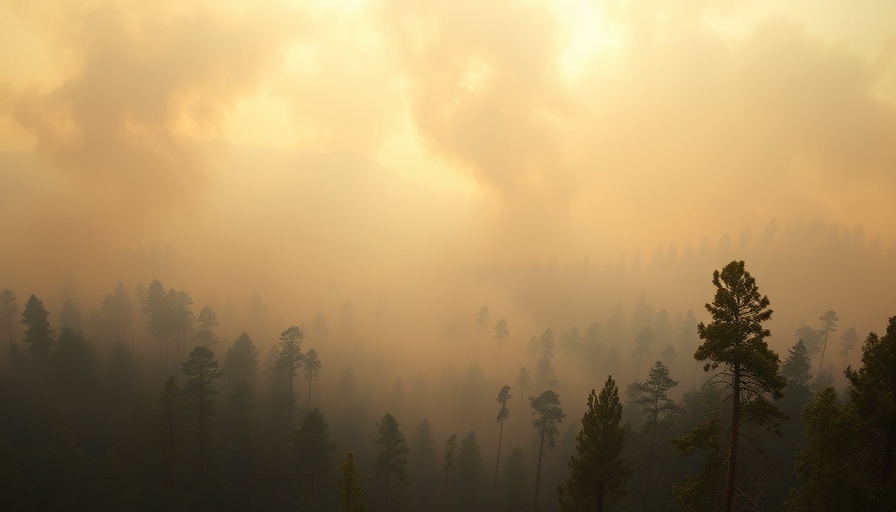
Understanding the Heart Risks Associated with Wildfire Smoke
As wildfires rage, especially those emerging from Canada, the looming threat of smoke has grown significantly, not just for respiratory health but also for our cardiovascular systems. The American Heart Association (AHA) has sounded the alarm, emphasizing the serious implications of wildfire smoke on heart health. Understanding the mechanisms behind this risk is essential for everyone, particularly those living in areas prone to such environmental hazards.
Pollutants in Wildfire Smoke and Health Implications
Wildfire smoke is imbued with numerous harmful pollutants, including fine particulate matter that can infiltrate our lungs and enter our bloodstream, causing both immediate and long-term cardiovascular issues. Dr. Keith Churchwell from the AHA highlights that exposure to these pollutants is linked to an increased risk of sudden cardiac arrests and emergency room visits for cardiovascular-related conditions.
Research has consistently shown that the elevated risks of heart-related problems sometimes outweigh respiratory issues during wildfire events. For instance, during recent wildfire seasons, data indicated a staggering 42% increase in heart attack emergency room visits just a day after exposure to heavy smoke.
At-Risk Populations: Who Should Be Extra Cautious?
Particularly vulnerable populations include older adults and those with pre-existing cardiovascular conditions. The data suggests that men and women aged 35 to 64, especially those from lower socioeconomic backgrounds, are at heightened risk when exposed to wildfire smoke.
Moreover, a 2020 study pointed out that heavy smoke exposure can increase out-of-hospital cardiac arrests by up to 70%, highlighting the urgent need for awareness and preventive measures among these groups.
Signs of Cardiovascular Distress and How to Respond
Recognition of the early signs of a heart attack or stroke can be life-saving. The AHA encourages everyone, especially those at-risk, to be vigilant about their bodily responses during wildfire smoke exposure. Symptoms indicating a possible heart issue include:
- Chest discomfort, which may feel like pressure or squeezing.
- Pain or discomfort in the arms, back, neck, jaw, or stomach.
- Shortness of breath, possibly accompanying other markers.
- Additional signs like cold sweat and nausea.
Being informed about these signs can ensure timely medical intervention, which is crucial for minimizing heart-related risks during wildfire season.
Nutritional Strategies to Support Heart Health
While avoiding wildfire smoke is paramount, maintaining heart health through diet is equally essential. Opting for cardiovascular-friendly produce and nutrient-dense foods can bolster heart resilience. Incorporating antioxidant-rich foods, like certain fruits, vegetables, and red wine in moderation, might offer protection against heart ailments.
In Muskegon, residents can benefit from exploring local resources that promote heart health, including accessible fitness tips and nutritional advice aimed at supporting cardiovascular strength amidst the ongoing environmental challenges.
Practical Steps for Reducing Risks
In addition to dietary changes, proactive measures can mitigate the risks associated with wildfire smoke. Strategies include:
- Staying indoors during smoke alerts, using air purifiers whenever possible.
- Undertaking regular health check-ups to monitor heart health and risk factors.
- Staying informed about local air quality conditions and making preventive choices accordingly.
Taking Action: Who to Call for Support
If you or someone you know is at risk for heart health issues, it's critical to seek guidance and support. Terrijo Parker at 231-571-6100 specializes in senior benefits, ensuring that you have the necessary resources and information for minimizing health risks. Don’t hesitate; call her now for tailored advice.
 Add Row
Add Row  Add
Add 




Write A Comment